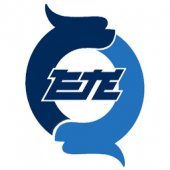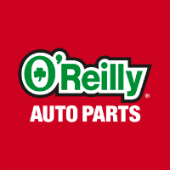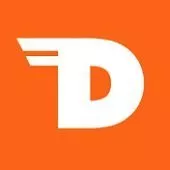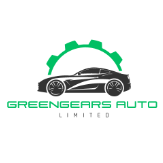-
Welcome to Auto Parts Forum
Whether you are a veteran automotive parts guru or just someone looking for some quick auto parts advice, register today and start a new topic in our forum. Registration is free and you can even sign up with social network platforms such as Facebook, X, and LinkedIn.
Brief analysis of automobile common materials
-
Similar Topics
-
By OReilly Auto Parts
SPRINGFIELD, Mo., March 13, 2025 (GLOBE NEWSWIRE) -- O’Reilly Automotive, Inc. (the “Company” or “O’Reilly”) (Nasdaq: ORLY), a leading retailer in the automotive aftermarket industry, today announced that its Board of Directors (the “Board”) approved a 15-for-1 split of its common stock, to be effected in the form of a one-time special stock dividend.
link hidden, please login to view -
By Dorman Products
“Show and tell” | Tips from mechanics #automobile #carrepair #truckrepair #autorepairtips
-
By Dorman Products
“Upselling” doesn’t help you or us | Tips from mechanics #automobile #autorepair #upselliing
-
-
By GreenGears Auto Limited
The automotive industry is undergoing a seismic transformation driven by technological advancements and changing consumer behavior. One of the most significant shifts is the rapid adoption of digital retailing in both the auto parts and automobile markets. This revolution is changing the way consumers research, shop for, and purchase vehicles and auto parts, presenting both challenges and opportunities for businesses in the industry.
This comprehensive article explores the multifaceted landscape of digital retailing in the automotive sector, encompassing the auto parts and automobile markets. We'll delve into the factors driving this trend, the various technologies and strategies involved, the benefits and challenges it presents, and the future outlook for digital retailing in the automotive world.
The Rise of Digital Retailing in the Automotive Industry
The automotive industry, traditionally reliant on brick-and-mortar dealerships and physical stores, is experiencing a paradigm shift with the increasing prevalence of digital retailing. Several factors have contributed to this transformation:
Changing Consumer Behavior: Today's consumers are more digitally savvy and connected than ever before. They expect convenience, transparency, and personalized experiences when shopping for any product or service, including cars and auto parts.
Technological Advancements: The rapid development of technologies like e-commerce platforms, mobile apps, virtual reality (VR), and augmented reality (AR) has enabled businesses to create immersive and interactive digital shopping experiences.
The COVID-19 Pandemic: The pandemic accelerated the adoption of digital retailing as consumers sought contactless and safe ways to shop for cars and auto parts.
Increased Competition: The automotive industry is becoming increasingly competitive, with new players entering the market and disrupting traditional business models. Digital retailing offers a way for businesses to differentiate themselves and provide a superior customer experience.
Digital Retailing in the Auto Parts Market
The auto parts market has witnessed a significant surge in digital retailing in recent years. Consumers are increasingly turning to online platforms to research, compare prices, and purchase auto parts. This trend is fueled by several factors:
Convenience: Online shopping offers unparalleled convenience, allowing consumers to browse and purchase parts from the comfort of their homes or on the go. Wider Selection: Online retailers typically offer a much wider selection of parts than brick-and-mortar stores, providing access to a vast inventory of both new and used parts. Price Transparency: Online platforms make it easy to compare prices from different sellers, ensuring consumers get the best deals. Detailed Information: Online listings often include detailed product descriptions, specifications, images, and customer reviews, helping consumers make informed decisions. Key Digital Retailing Strategies in the Auto Parts Market
E-commerce Platforms: Auto parts retailers are leveraging e-commerce platforms like Shopify, Magento, and WooCommerce to create online stores where customers can browse and purchase parts. Mobile Apps: Mobile apps provide a convenient way for customers to shop for parts on their smartphones or tablets. Inventory Management Systems: Robust inventory management systems ensure accurate product availability information and efficient order fulfillment. Search Engine Optimization (SEO) and Pay-Per-Click (PPC) Advertising: These digital marketing strategies help auto parts retailers attract more traffic to their online stores and increase sales. Social Media Marketing: Social media platforms provide a valuable channel for engaging with customers, building brand awareness, and promoting products. Customer Relationship Management (CRM) Systems: CRM systems help businesses manage customer interactions and provide personalized experiences. Challenges and Opportunities in Auto Parts Digital Retailing
Competition: The online auto parts market is highly competitive, with numerous players vying for customers' attention. Retailers need to differentiate themselves through superior product selection, pricing, customer service, and user experience. Logistics and Fulfillment: Efficient logistics and fulfillment are critical for success in online auto parts retailing. Businesses need to ensure timely delivery and hassle-free returns to maintain customer satisfaction. Trust and Authenticity: Building trust and ensuring the authenticity of used parts is crucial in the online marketplace. GreenGears Auto Limited addresses this by providing detailed product descriptions, images, and certifications, along with a robust warranty program. Digital Retailing in the Automobile Market
The automobile market is also undergoing a digital transformation, with consumers increasingly relying on online platforms for their car-buying journey. This trend is particularly evident in the used car market, where online platforms like Carvana and Vroom have gained significant popularity.
Key Digital Retailing Strategies in the Automobile Market
Virtual Showrooms: Virtual showrooms allow customers to explore vehicles in 3D, view interior and exterior details, and even take virtual test drives. Online Financing and Trade-Ins: Digital platforms offer streamlined financing and trade-in options, simplifying the car-buying process. Home Delivery: Many online car retailers offer home delivery, allowing customers to purchase a car without ever visiting a dealership. Benefits of Digital Retailing in the Automobile Market
Convenience: Online car buying eliminates the need for time-consuming dealership visits, offering a more convenient and efficient experience. Transparency: Online platforms provide access to detailed vehicle information, pricing, and reviews, empowering consumers to make informed decisions. Competitive Pricing: Online retailers often offer lower prices due to reduced overhead costs. Wider Selection: Online platforms offer a wider selection of vehicles than traditional dealerships, making it easier to find the perfect car. Challenges and Opportunities in Automobile Digital Retailing
Trust and Transparency: Building trust is essential in the online car-buying process. Retailers need to provide transparent information about vehicles, pricing, and warranties. Test Drives: While virtual test drives are becoming more sophisticated, many consumers still prefer to physically test drive a car before purchasing it. Customer Service: Providing excellent customer service is crucial for online car retailers to build loyalty and overcome any hesitation about buying a car online. The Future of Digital Retailing in the Automotive Industry
The future of digital retailing in the automotive industry is bright. As technology continues to advance and consumer behavior evolves, we can expect even greater adoption of digital channels for both auto parts and automobile purchases.
Emerging Trends:
Artificial Intelligence (AI) and Machine Learning: AI and machine learning will play an increasingly important role in personalizing the digital shopping experience, providing recommendations, and automating various aspects of the sales process. Augmented Reality (AR) and Virtual Reality (VR): AR and VR technologies will further enhance the online shopping experience by allowing customers to visualize parts and vehicles in their own environment. Blockchain: Blockchain technology can be used to create secure and transparent transactions, enhancing trust and confidence in the online marketplace. Conclusion
Digital retailing is transforming the auto parts and automobile markets, offering consumers greater convenience, transparency, and choice. While challenges remain, the opportunities for businesses that embrace digital technologies are immense.
GreenGears Auto Limited (
link hidden, please login to view) exemplifies the successful implementation of digital retailing in the used auto parts market. By offering a user-friendly online platform, a vast selection of quality-tested parts, and exceptional customer service, GreenGears Auto Limited has established itself as a leader in the industry. As the automotive industry continues its digital evolution, businesses that adapt and innovate will be well-positioned to thrive in the years to come.
-





Recommended Posts
Join the conversation
You can post now and register later. If you have an account, sign in now to post with your account.
Note: Your post will require moderator approval before it will be visible.